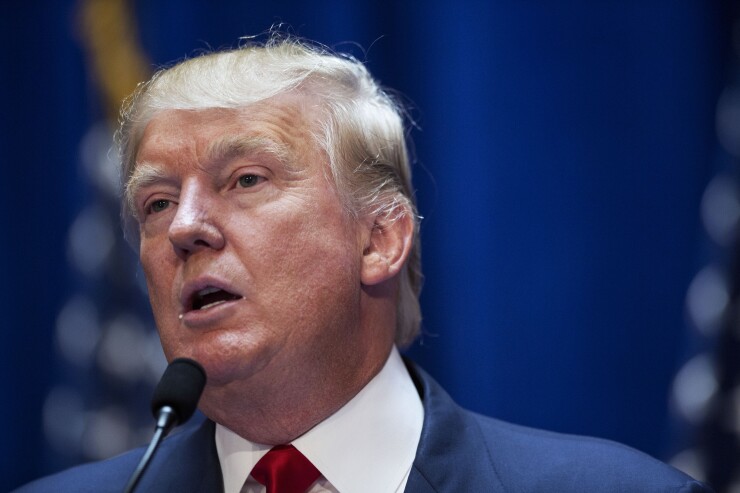President-elect Donald Trump has repeatedly vowed to repeal the Affordable Care Act (ACA), which ensures that 45 million Americans have access to
The results of the
Since the inception of the ACA, also known as Obamacare, the Republican party has been clear that they do not think the federal government should be funding states to provide healthcare coverage to its residents. Trump's second presidency may provide the opening many members of the GOP have been waiting for.
Read more:
"For 14 years, Republicans have claimed that they want to repeal the Affordable Care Act, but they've rarely been able to enunciate what they want to replace it with," says Alden Bianchi, partner at McDermott Will & Emery. " The ACA has been not only successful, it's been wildly successful."
According to the chair of the Department of Health Policy and Management at Columbia University, the U.S. population has the highest rate of insured Americans in the nation's entire history. When the ACA went into effect, 17% of Americans were uninsured, and now that number is just 8%. Subsidies originally enacted under the Biden administration's American Rescue Plan in 2021 have made ACA health plans more affordable, leading to 45 million people receiving coverage under the ACA — a record-high in the law's 14-year history.
Dire possibilities
But what happens if a partial or total repeal of the law comes to fruition? A full repeal could equate to up to 24 million Americans losing insurance, according to estimates from the Urban Institute and the Commonwealth Fund. Notably, the Commonwealth Fund predicts a partial repeal would have even worse consequences: Upwards of 32 million Americans would go without coverage.
Read more:
This is because a partial repeal would likely mean no federal government subsidies, leading to a spike in premiums that only especially sick Americans would consider worth the money. Less healthy people means higher premiums, pushing a cycle of cost spikes that render the market useless for anyone who needs it. On the other hand, the death of the ACA may not mean a complete death to the non-employer insurance market.
Bianchi isn't confident that Republicans will fully get rid of the ACA, and instead predicts that they will try to weaken regulations, minimize funding and even privatize Medicaid, which is the third-largest program in the federal budget, following Social Security and Medicare.
"This means you would hand a block of money to the state, and the state would then go out and purchase coverage for folks in the private market," says Bianchi. "That might not end well."
Medicaid under the Trump administration will likely limit benefits for existing enrollees, limit who is eligible to receive it — given that the ACA expanded Medicaid eligibility — or a combination of both, Bianchi adds.
Read more:
"[Republicans] can take a run at it," he says. "They want to claim that they 'repealed Obamacare,' and they just need something that they can call a legislative win."
Employers can't escape the ripple effects
Employers should expect to see higher healthcare costs overall if the ACA is weakened. Bianchi points out that expanded coverage under the ACA has led to a degree of cost control. For example, the ACA pushed for value-based payment models under Medicare, penalizing hospitals for high readmission rates and high rates of hospital-acquired conditions.
Arguably, moves like this have pushed healthcare providers to increase the price of their care. The ACA has also highlighted the inconsistent cost of care in the U.S., pushing for price transparency among private health insurers and hospitals. A reversal of these trends may mean that care will become even more expensive — a chilling thought for employers dealing with record annual cost increases for a third consecutive year.
Read more:
This doesn't even take into account employers who use the ACA marketplace to provide health insurance to their workers, or those with employees who insure themselves through the ACA marketplace, says Bianchi.
"If you have a large number of low-wage, high-turnover workers, you're probably not offering coverage, and if you are, you're probably offering total crap," he says. "If subsidized coverage goes away, there'll be greater pressure on employers to offer more generous coverage to their entire workforce, and that's going to be a real problem because economically, that's just getting more expensive by the year."






